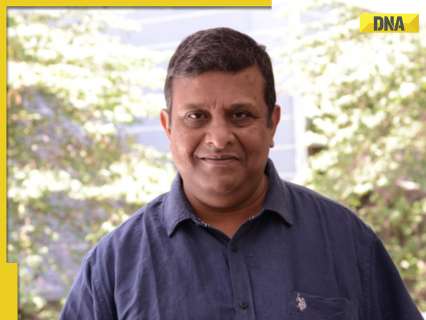
Chakraborty’s academic path began with a B.Sc. in Chemistry from the University of Poona in 1993, followed by an M.Sc. in Chemistry from IIT Madras in 1996.
In an increasingly globalised world, the intersection of academia and policy-making plays a critical role in shaping international trade. Debashis Chakraborty, a faculty member at the Indian Institute of Technology Madras (IIT Madras), exemplifies this intersection through his research and contributions to the field of international trade.
Academic Background: A Solid Foundation in Research
Chakraborty’s academic path began with a B.Sc. in Chemistry from the University of Poona in 1993, followed by an M.Sc. in Chemistry from IIT Madras in 1996. His pursuit of higher education led him to the University of Göttingen in Germany, where he earned a Dr. rer. nat. Degree. Although his early focus was on the physical sciences, his academic background helped him develop a rigorous, evidence-based approach to research, which he later applied to his work on biodegradable polymers which is a major subject of new global plastics trade policy.
This shift from science to economics and international trade was driven by an increasing recognition that global trade discussions require diverse academic perspectives. Chakraborty’s transition from a scientific to an economic and futuristic research and policy-focused career reflects the interdisciplinary approach that modern global trade demands.
Industry Experience Informs Nuanced Policy Perspectives
Dr. Chakraborty’s career seamlessly bridges academia and industry. He partnered with Dow Chemical on process optimization research as a postdoctoral fellow. He later held managerial positions at Biocon and Piramal Healthcare, gaining first-hand exposure to corporate strategies and decision-making.
These professional experiences provided strategic planning skills and practical wisdom that now enrich his policy advisory roles. At IIT Madras, he shares this learning with students, grooming well-rounded graduates who are ready to join the corporate world.
Influencing National and International Trade Directions
Leveraging rigorous research and practical exposure, Dr. Chakraborty actively participates in high-stakes trade policy discussions in strategic professional gatherings. He consults extensively with the various agencies of the Indian government, providing recommendations that balance growth objectives with social and ecological considerations.
In addition to his policy consultations, Dr Chakraborty regularly attends prominent trade-related conferences, including those focusing on emerging global priorities like the shift to non-plastic, biodegradable alternatives. These platforms enable him to stay at the forefront of sustainability-driven trade dialogues while contributing his expertise on balancing environmental responsibilities with economic growth.
His evidence-based research perspectives on biodegradable polymers have contributed towards India’s negotiating position on multilateral issues like tariffs and environmental clauses. Domestically, Dr Chakraborty’s work has informed policies supporting local manufacturing and technology absorption.
As a prolific scholar, he produces cutting-edge research on issues with tangible real-world implications related to plastics pollution and climate change. His current work examines topics central to India’s strategic trade priorities – global value chains, access to critical technologies, and data regulations. Such targeted analysis allows him to provide prescient perspectives attuned to evolving policy needs.
Fostering Industry-Academia Partnerships
A core part of Dr Chakraborty’s work involves building collaborative platforms for researchers and policymakers. By nurturing these partnerships, he ensures academic rigour and empirical evidence consistently inform trade policy dialogues in plastics technology.
He routinely participates in conferences and workshops and policy briefings that break down silos between stakeholders. Through these initiatives, Dr. Chakraborty mobilizes knowledge-sharing channels that allow real-world developments to shape academic agendas and vice-versa.
The Road Ahead: An Essential Voice
As India charts its course amidst dynamic global trade patterns, voices like Dr. Chakraborty’s will only grow more critical. By blending academic wisdom and practical learning, his work demonstrates the
vital role of higher education in policymaking.
Moving forward, Dr Chakraborty’s ability to connect research insights with on-ground challenges will be key to developing balanced, evidence-based and forward-looking trade policies. As complex questions around sustainability, inequality and geopolitics come to the forefront, inputs from multifaceted experts like him will become invaluable.
